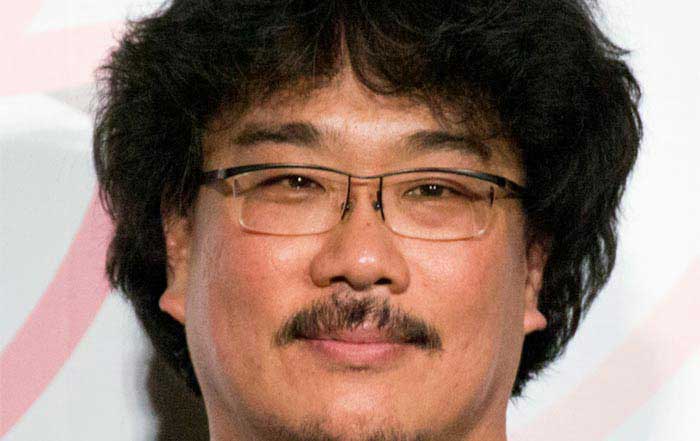One of 2014's most acclaimed worldwide cinema releases was Snowpiercer. A dystopian epic set upon a train that perpetually circles an earth whose surface has become uninhabitable due to frozen weather, it received praise for its uniquely crafted visual sensibility, remarkable performances and clear-eyed critique of modern social inequalities.
Its director is Bong Joon-ho who has, since his 2003 feature Memories of Murder, carved out a name as being one of South Korea's best film-makers. In fact, many critics believe him to be the best director the nation has ever produced, not to mention one of the most exciting artists working in the medium today.
Bong, grew up in an artistic family and knew he wanted to make movies from an early age. His debut movie, Barking Dogs Never Bite, came out in 2000. Dealing with the misadventures of a put-upon University lecturer who decides to abduct his neighbour's dog, it exhibited many of the features for which its auteur would later become recognised, most notably the sudden shifts in tone between farce and serious drama.
While Barking Dogs… garnered international critical plaudits, it wasn't until 2003's Memories of Murder that Bong truly reached a large audience. The true life story of a series of grisly murders that took place in rural Korea during the 1980s, at first it could be mistaken for a normal, run-of-the-mill procedural cop movie, with a rogue detective and his book-ish partner on the trail of a sadistic madman. As it unfolds, however, Memories of Murder becomes increasingly complicated and ambiguous, before building its audience up to an unexpectedly stark and powerful conclusion.
An instant success with both critics and audiences, it won its director plaudits and awards across the globe, including three awards at the San Sebastian Film Festival.
Rather than immediately capitalise on his new found fame by rushing out another big name film, Bong decided to work on a few short film projects next, contributing to a couple of small-scale omnibus projects. He was already, however, formulating plans for what would become his biggest film to date and, until recently, the most successful Korean movie of all time.
The Host, released in 2006, deals with the story of a huge, mutated sea beast that suddenly emerges from Seoul's Han River to terrorise the locals. Boasting Bong's biggest budget to date ($12 million), it had all the traits of a big, FX-laden blockbuster. Yet, bubbling under the movie's surface, was level of powerful political subtext, a stern comment on Korean closeness to the United States during the war on terror and about the potential issues this might bring about.
It reached huge international acclaim upon its premier at the Cannes Film Festivals, lauded by critics across the globe. Strangely enough, it received a colder reaction from critics in Bong's home country, who felt it lacked the subtlety of his previous work. Audiences, however, did not agree and made The Host the most watched Korean movie of all time, with over 13 million tickets sold domestically.
Bong's next feature, Mother, was similarly successful, winning critical and commercial success upon its release in 2009, particularly for its superb acting. Then, with Snowpiercer, Bong released his first ever film in the English language. Who would bet against Korea's best known film-maker becoming a global household name in the near-future?

